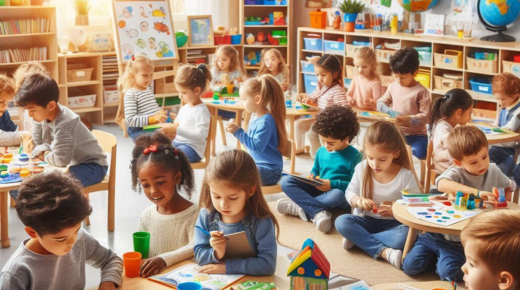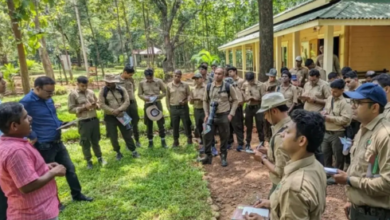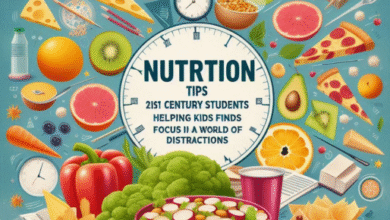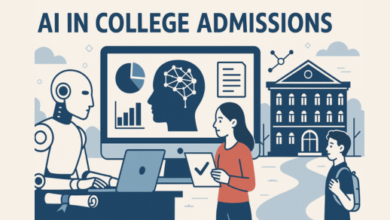Why is Early Childhood Education Important for Young Learners?

Ever watched a toddler stack blocks? They wobble, fall, then try again. Now imagine that child in a classroom, guided to build not just towers but skills for life. That’s early childhood care and education (ECCE) in action. Think of it as the first brushstroke on a blank canvas—what happens here shapes the whole picture.
Why does this matter? Because the right start can turn curiosity into confidence. Let’s explore the importance of ECCE and how it molds young minds before they even step into formal School Admission processes.
What is Early Childhood Education?
Early childhood education isn’t just ABCs and 123s. It’s a structured approach where kids aged 3–8 learn through play, interaction, and guided activities. Think storytelling, puzzles, or group games. These experiences build cognitive, social, and emotional muscles.
The importance of ECCE lies in its timing—this is when brains grow fastest. Miss this window, and catching up later gets harder. For example, a child sorting coloured blocks isn’t just playing. They’re learning logic, patience, and fine motor skills.
Importance of Early Education for a Child’s Development
Kids aren’t mini-adults. Their brains need specific inputs to wire correctly. Early education acts like scaffolding, supporting growth in every area. Let’s break it down.
Brain Development
Did you know 90% of brain development happens before age 5? (UNESCO, 2024). Activities like counting beads or identifying shapes create neural connections. These skills later ease School Admission interviews. For instance, a child who recognizes patterns might solve math problems faster. Strong foundations here mean fewer struggles in higher classes.
Social Skills
Ever seen kids argue over a toy? ECCE teaches sharing and teamwork. Group activities like role-playing “market day” let kids negotiate, take turns, and communicate. Without this, a child might struggle to make friends or speak up in class.
Emotional Growth
Tantrums fade when kids learn to name emotions. A teacher asking, “Are you sad because Rahul took your crayon?” helps children articulate feelings. This builds resilience. Imagine a child who can say, “I’m angry” instead of hitting others. That’s emotional intelligence in action.
Long Term Impact
Early learners often outperform peers. For example, students from quality ECCE programs adapt better in top CBSE schools in Pune. They’re familiar with routines, follow instructions, and stay curious. Skills like focus or time-management stick for life.
Language and Literacy
Reading aloud isn’t just fun—it’s brain fuel. Kids exposed to rich vocabularies grasp languages faster. A child who hears “Let’s water the plants” daily will soon use phrases like “pour slowly” or “thirsty leaves.” This fluency aids reading and writing later.
Foundation for Lifelong Learning
ECCE isn’t about memorizing facts. It’s about sparking curiosity. Let’s see how:
Skill
How ECCE Helps
Problem-solving
Puzzles, “what if” questions
Creativity
Art, storytelling, open-ended play
Critical thinking
Sorting games, cause-effect experiments
Confidence
Praise for effort, not just results
Adaptability
New activities, mixed peer groups
This table shows how early lessons shape future learners. A child comfortable with trial-and-error won’t fear math challenges in grade 5.
Why Parents Prioritise ECCE Now
Times have changed. Earlier, kids roamed freely. Now, structured learning starts early. Here’s why:
Competition: Top schools expect basics like phonics or number sense.
Awareness: Parents see ECCE graduates adjusting better to routines.
Technology: Screens distract kids; ECCE balances tech with human interaction.
Research: Studies prove early intervention closes learning gaps.
Social Demand: Peers’ progress pressures families to enrol kids early.
Career Prep: Skills like teamwork matter in adult jobs too.
Conclusion
Think of ECCE as planting a sapling. Water it well, and it grows strong. Skip care, and it struggles. The right start defines a child’s journey—whether they embrace learning or dread it. At GIIS Pune, we’ve seen shy toddlers bloom into confident storytellers.
Ready to give your child that edge? Explore top schools in Pune like GIIS Pune, where early education isn’t just a phase—it’s a philosophy. Let’s build those block towers together, one smart brick at a time.




